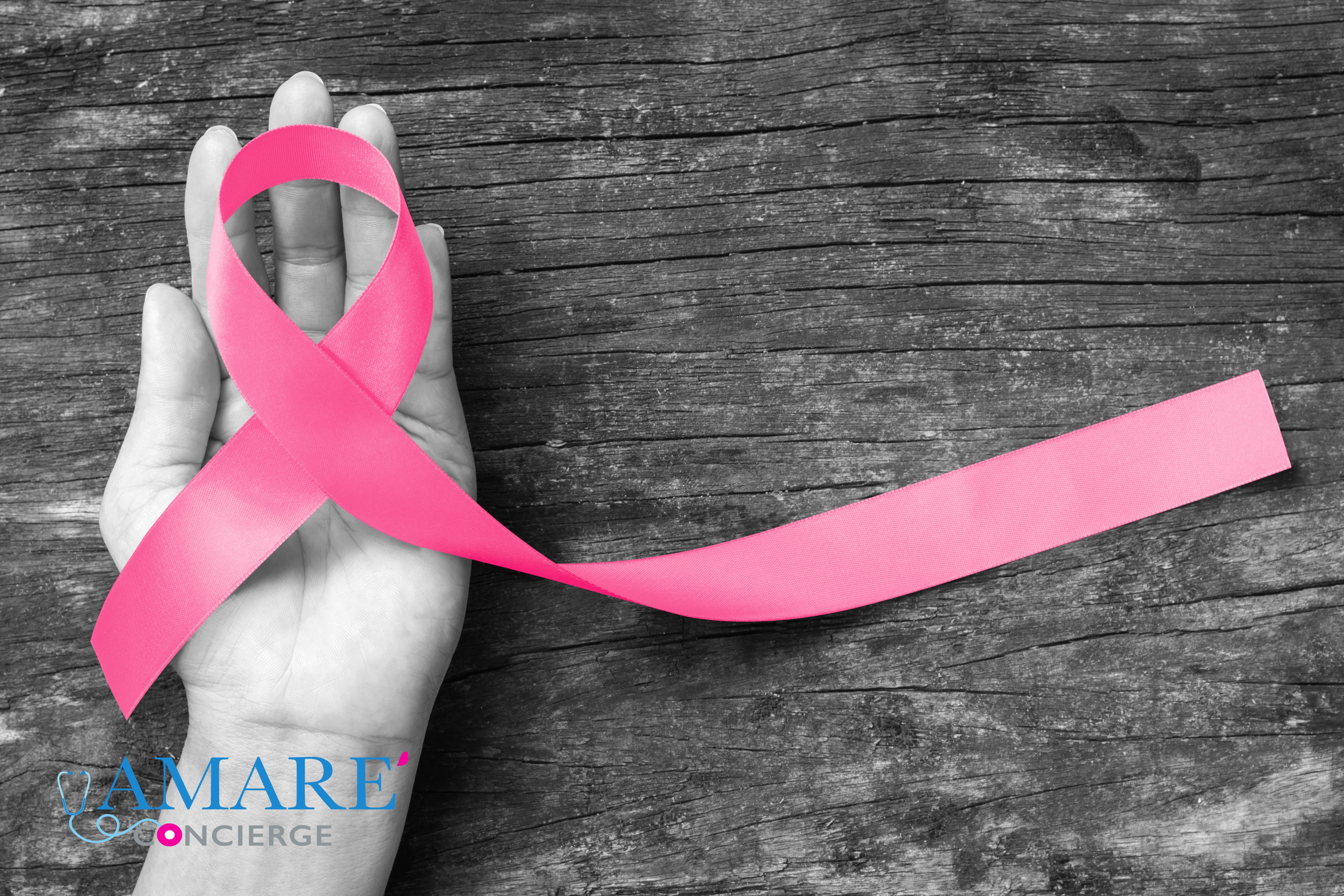BRCA is an abbreviation for “Breast Cancer” and is known as the breast cancer gene. There are two types of BRCA genes that affect how likely a person is to develop breast cancer. BRCA1 and BRCA2.
All humans have the BRCA genes, both 1 and 2. And while the name might make you think they cause breast cancer, that isn’t quite the case. In fact, in a healthy individual, these genes prevent breast cancer by repairing the DNA breaks that cause the uncontrolled growth of tumors. This makes them tumor suppressor genes – meaning they suppress the growth of tumors.
What makes BRCA the Cancer Gene?
BRCA 1 and 2 cause cancer when their ability to suppress the development of tumors doesn’t work as it is supposed to. When the genes mutate, they break and ultimately cannot function as they were intended.
How likely am I to get breast cancer if I test positive for a BRCA gene mutation?
A BRCA gene mutation is found in about 25% of the population, about 1 in 400. About 55-65% of women with the BRCA1 mutation will get breast cancer before the age of 70. Unfortunately, those who beat cancer the first time, have a higher chance of developing another cancer.
How do I know if I have the BRCA gene?
The BRCA gene is passed down from family members. There are many genetic tests available that look for gene mutations, including the BRCA. Some tests look for mutations that have been found in family members, while others look for all mutations. To look for these mutations your doctor will take a blood or saliva sample and send it to the lab.
Should I be tested for the BRCA gene?
If you have a family member who has been diagnosed with breast cancer before the age of 50, had cancer in both breasts, or has had both breast and ovarian cancer, you should be tested for the BRCA gene mutation. Individuals with cases of male breast cancer in their family, as well as Ashkenazi Jewish ethnicity should also be tested.
What does a positive test mean?
If an individual tests positive for a BRCA1 or BRCA2 mutation, this indicates they have an increased risk of developing breast cancer. The test, however, does not indicate whether an individual will definitely get cancer. There are some women who have the mutation but do not develop cancer.
If you test positive, your doctor will likely recommend more aggressive screening. You may be asked to get a mammogram every year beginning at 25. Some doctors prefer to send patients through an MRI, as it can be even more sensitive at detecting breast cancer.
Because BRCA is linked to ovarian cancer, your doctor may also request a transvaginal ultrasound be conducted to look for any abnormalities.
If you’re concerned that you may have an increased risk of developing breast cancer or ovarian cancer, contact our office to schedule an appointment with Dr. Drai. He can help determine if testing is the best option for you and what your next steps might be.





